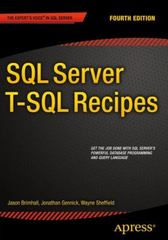Answered step by step
Verified Expert Solution
Question
1 Approved Answer
Project 2 - Manufacturing System Project Overview This project involves developing a discrete - event simulation to model a high - volume automotive parts manufacturing
Project Manufacturing System
Project Overview
This project involves developing a discreteevent simulation to model a highvolume automotive parts manufacturing line. Initially, the focus is on a single product line to simplify development. A bonus challenge includes extending the simulation to handle multiple product types, each with unique manufacturing requirements.
System Description
The production line is divided into several phases: raw material handling, machining, assembly, quality control, and packaging. Each stage includes specific machinery and labor requirements, operating across multiple shifts.
Objective
Optimize throughput for a single product line
Identify and mitigate production bottlenecks
Analyze impacts of operational variables through scenario analysis
Bonus Objective: Extend the simulation to handle multiple product types, analyzing the additional complexity and resource allocation challenges.
Tools and Programming Requirements
Choose an appropriate programming language eg Python, Java, C Develop basic functionalities for discreteevent simulation such as event scheduling, time progression, and state updates.
Detailed Instructions
System Modeling:
Define raw materials, intermediate parts, and finished products. Detail operations in each production stage like loading, machining, assembling, inspecting, and packaging. Identify and model resources including machines and operators.
Data Requirements:
Establish times for each machine and operation based on hypothetical but realistic estimates. Configure the frequency of raw material inputs. Determine typical failure rates and maintenance times for machines. Program shift patterns and worker allocations.
Simulation Implementation:
Develop a system to manage events such as the start and end of processes, and resource breakdowns. Implement a simulation clock to advance to the next event. Allow users to modify input variables like machine count and shift timing.
Experimentation and Analysis:
Run basic scenarios focusing on a single product type to establish baseline performance. Adjust key variables to observe effects on throughput and identify bottlenecks. Collect data, analyze performance, and generate recommendations.
Bonus Challenge MultiProduct Extension
Introduce different types of products and parts. Add events for machine setup changes and productspecific routing. Explore the impact of producing multiple product types on system efficiency and resource utilization.
Documentation and Presentation:
Provide the complete source code of the simulation. Document the design, implementation details, findings, and recommendations. Prepare slides to present your project outcomes, emphasizing both the initial focus and any extension to multiple products.
Step by Step Solution
There are 3 Steps involved in it
Step: 1

Get Instant Access to Expert-Tailored Solutions
See step-by-step solutions with expert insights and AI powered tools for academic success
Step: 2

Step: 3

Ace Your Homework with AI
Get the answers you need in no time with our AI-driven, step-by-step assistance
Get Started


